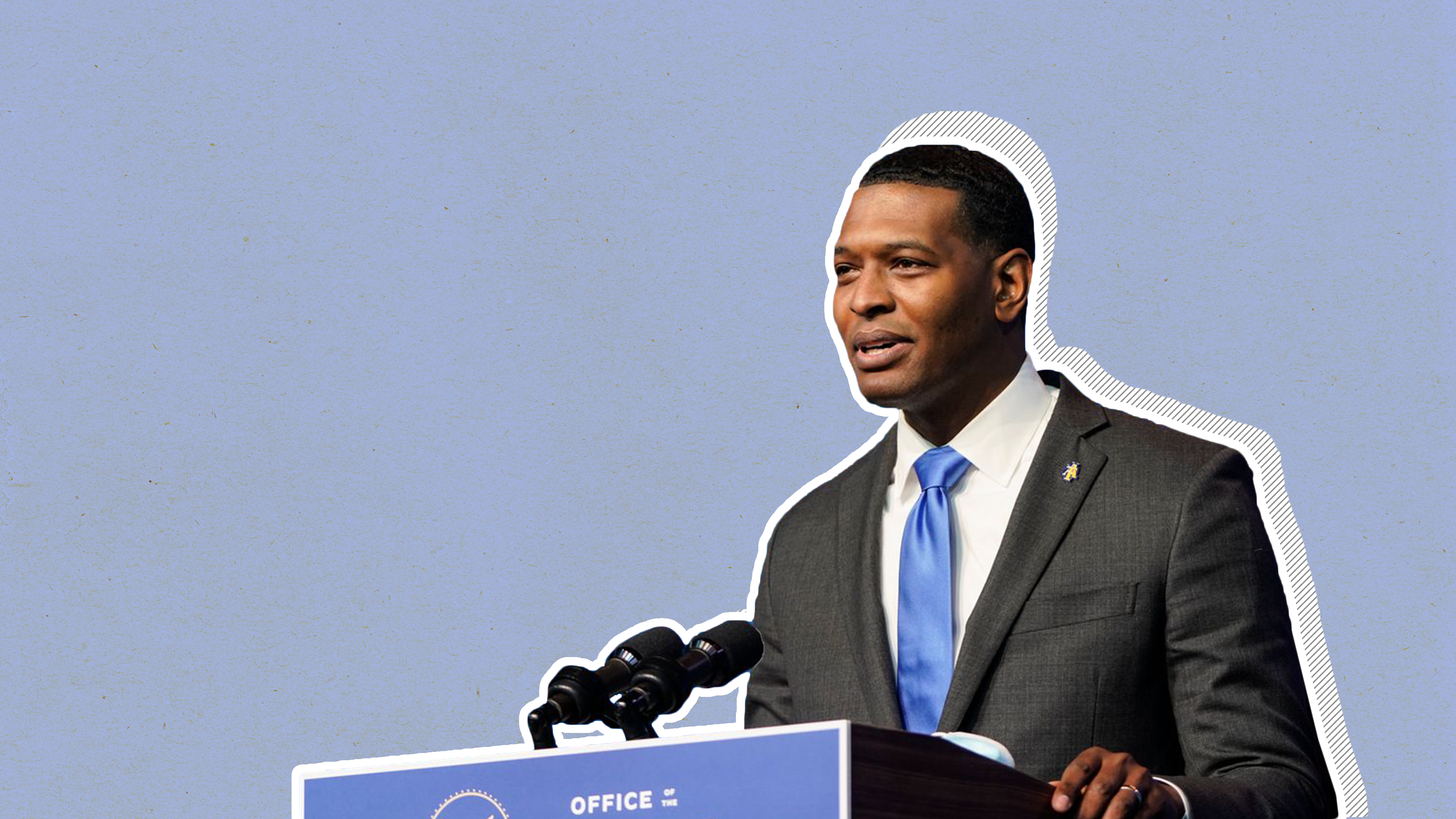
What Can New EPA Head Michael Regan Do?
The former head of North Carolina’s Department of Environmental Quality has his work cut out for him.
North Carolina’s top environmental regulator, Michael Regan, became the first Black man to lead the Environmental Protection Agency after being confirmed Wednesday by the Senate. During his confirmation hearing, he vowed to “move with a sense of urgency,” yet attempted to reassure Republican senators that his approach won’t leave working people who depend on fossil fuel jobs behind. Regan was confirmed by a 66-34 vote, with 16 Republicans joining all 50 Democrats.
“Our priorities for the environment are clear,” he said during his Senate confirmation hearing last month. “We will restore the role of science and transparency at EPA. We will support the dedicated and talented career officials. We will move with a sense of urgency on climate change. And we will stand up for environmental justice and equity.”
Regan’s words mark a stark contrast from the Trump Administration, which over the last four years struck major climate policies, deregulated the oil and gas industries, and rolled back regulations protecting the country’s air, water, and wildlife. Between the burden of tackling the EPA’s dismal past four years and President Joe Biden’s own ambitious environmental plan, Regan, 44, will face some serious challenges rebuilding an agency that lost nearly 5,000 employees during the Trump era.
Regan began his career as an environmental regulator for the EPA in 1998, serving under both the Clinton and Bush administrations. In 2008, he then joined the Environmental Defense Fund, ultimately rising to the position of vice president and Southeast regional director. In 2017, he was tapped to serve as secretary for North Carolina’s Department of Environmental Quality where he negotiated the largest coal ash contamination cleanup in U.S. history and created the state’s first Environmental Justice and Equity advisory board. During his tenure at the DEQ, he also worked to develop the state’s Clean Energy Plan, which aims to reduce private sector greenhouse gas emissions by 2030 and achieve carbon neutrality by 2050 while promoting clean energy technologies and creating opportunities for communities across the state.
Regan’s confirmation as EPA administrator rounds out Biden’s star-studded climate team. Gina McCarthy, who served as President Barack Obama’s EPA chief, will lead the charge on domestic affairs as the chair of a new White House Office of Climate Policy, and John Kerry, the former secretary of state, will be Biden’s international climate envoy. While making sure to pack his administration with climate heavyweights, Biden also signed numerous executive orders in his first few weeks in office. During Biden’s first two months in office, the United States rejoined the Paris Climate Agreement, cancelled the Keystone XL pipeline permit, and indefinitely paused new federal oil and gas leases, signaling a drastic shift on climate change and environmental justice policies. Biden has also vowed to achieve net-zero emissions by 2050 and eliminate fossil fuel emissions from the power sector by 2035 along the way. The EPA, and its leadership, will be instrumental to achieving these goals.
Before Biden’s climate team can enact any tangible change, Regan will first need to tackle the Trump administration’s recent rule that weakens the federal government’s ability to issue clean air and climate change regulation.
“It’s no secret that the next EPA administrator has his work cut out for him,” said Sen. Tom Carper, a Democrat of Delaware who will become the chairman of the Senate Environment and Public Works Committee, during the confirmation hearing. He also added that Regan will be “tasked to rebuild an agency badly damaged by flawed leadership“ and that has suffered “organizational drift and low morale.”
During his term, former President Donald Trump launched a full-fledged attack on the EPA. He nominated two heads over his four years: Scott Pruitt and Andrew Wheeler, both of whom actively undermined the EPA’s role in curbing the effects of climate change. Pruitt shrunk its reach and challenged regulations in court more than a dozen times. As his successor, Wheeler — a coal industry lobbyist — systematically reduced the role of scientists in the agency’s policy-making process. Besides cramming the EPA with climate change deniers, Trump attempted to cripple the agency and slash its funding, most recently proposing a 26% cut for the 2021 fiscal budget. Between the terrible leadership and shrinking budget, the Trump administration dismantled more than 100 environmental rules in just four years.
Regan outlasted Mary Nichols, Biden’s original frontrunner for EPA head, partly because he garnered more support from progressive activists and leaders.
However, activists in Regan’s own state have been a bit more reluctant. Steven Norris, an environmental activist from North Carolina, told The New York Times that Regan’s “heart is in the right place,” but that “he’s not tough,” citing the time when he didn’t block permits for the Atlantic Coast Pipeline, a natural gas pipeline that has since been canceled.
During his initial hearing, Regan emphasized his commitment to transparency and collaboration multiple times.
“I have also learned that we can’t simply regulate our way out of every problem we face,” he said.
Former colleagues have enthusiastically supported Regan’s nomination as EPA administrator, as have many activists across the country. Miranda Nelson, Jobs to Move America’s New York/New Jersey director, congratulated Regan on his nomination in a statement to The Interlude.
“We appreciate Regan’s focus on environmental justice communities and equity,” she said. “We hope he understands that you can’t fight our climate crisis without ensuring a just transition for workers and making sure that our green economy creates good jobs for our communities.”


